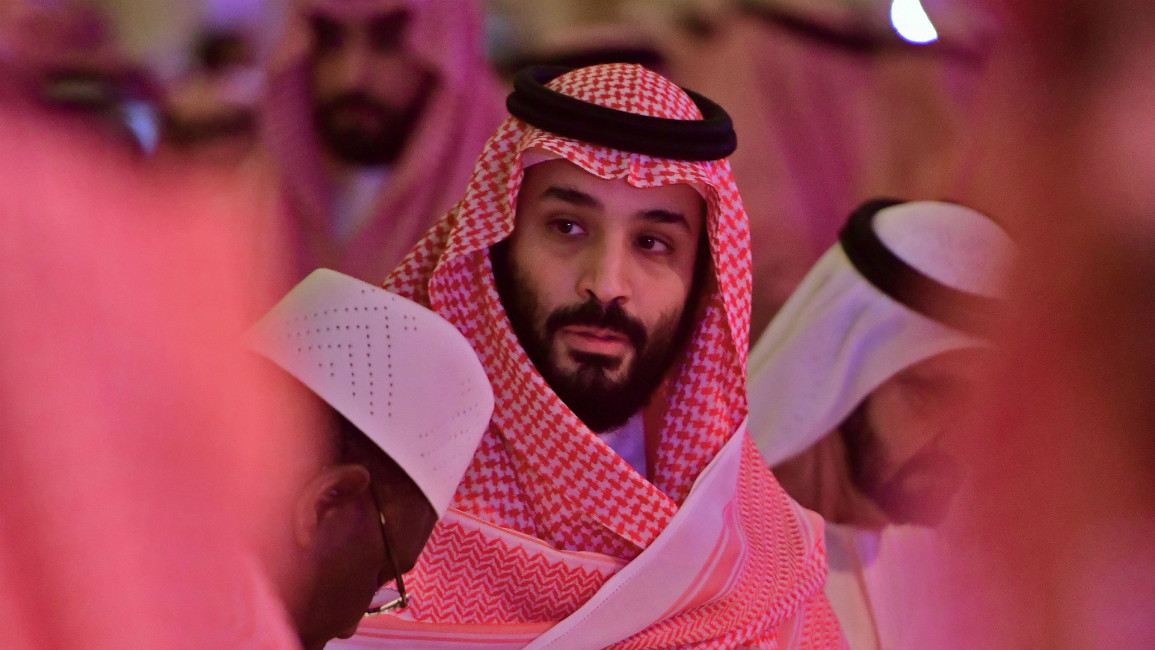Follow us on Facebook, Twitter and Instagram to stay connected
Crashing oil prices and coronavirus lockdowns could lead to unprecedented austerity drive in Saudi Arabia
Saudi Arabia could be on the verge of a major austerity drive, as low oil prices and coronavirus lockdown measures batter the energy-reliant economy, financial experts have warned.
A former International Monetary Fund (IMF) official told Saudi daily Arab News that the country should brace itself for turbulent months to come due to financial problems caused by the coronavirus.
This will likely mean fiscal consolidation measures, increases in taxes and a decrease in subsidies, the economist said.
"The expenditure challenge can be summed up in the increased cost of the health bill. The current expenditure is more than 80 percent and is difficult to lower," the former IMF figure said.
"So the challenge is fiscal sustainability in the short and medium term, and the final outcome depends on the duration of the COVID-19 crisis."
The story published in the pro-government daily suggests that Riyadh might be preparing Saudis for difficult days, while expatriates are expected to bear the brunt of the cuts.
Saudi Arabia's stock market has plunged since the country took on Russia in a price war this year over a dispute on oil production.
This includes shares in Saudi Aramco - viewed as the lynchpin for future economic growth - which has been through a rollercoaster fews months.
|
|
Sabic, a huge chemicals company recently bought by Aramco, lost more than $250 billion in the first quarter of 2020 and is expecting continued financial woes this year.
Although OPEC and Russia have agreed on production cuts, the limits are not thought to be enough to rescue oil prices, which have collapsed following a huge drop in demand due to global coronavirus lockdowns.
Saudi Finance Minister Mohammed Al-Jadaan told Al-Arabiya on Saturday that the kingdom is now running a $9 billion deficit with a 50 percent drop in oil revenues.
The dire financial outlook means the Saudi state will have to enact strict spending cuts to prevent the deficit spiralling further out of control.
"We have taken several steps both in relation to health, and in relation to financial measures in terms of reducing expenditure," he said in the interview, according to Saudi Gazette.
"Right now, we are looking at what we can do to reduce the deficit level. Certainly, there has been a significant drop in revenues, and we will likely see its impact in the coming quarters."
The government has taken loans to help mitigate the losses but it comes at a crucial time for de-facto ruler Crown Prince Mohammed bin Salman who has launched Vision 2030 to diversify the economy.
Low oil prices and lockdowns have battered the private sector - the pillar of this policy - while foreign assets fell to $464 billion, the lowest in 19 years, according to the Saudi Arabian Monetary Authority.
"With non-oil revenues, due to the precautionary measures, they will be dropping as there is a huge reduction in economic activity and as a result, the non-oil revenues will drop," Al-Jadaan said.
|
|
"We must deal with this wisely and efficiently and with God’s will the Kingdom will be looking at several options to face a pandemic the world has never seen the likes of for more than 70 years, since nearly World War II. At a global level, this level of pandemic has never been seen before."
A document revealed by Asharq Al-Awsat shows plans to allow Saudi businesses to reduce working hours for employees, cut salaries by 40 percent, and shed jobs over the next six months.
It is hoped this will help Saudi businesses survive but the current climate but will likely having a devastating impact on domestic spending.
Saudi Arabia's economy is expected to contract between two to five percent in the coming months.


![President Pezeshkian has denounced Israel's attacks on Lebanon [Getty]](/sites/default/files/styles/image_684x385/public/2173482924.jpeg?h=a5f2f23a&itok=q3evVtko)



 Follow the Middle East's top stories in English at The New Arab on Google News
Follow the Middle East's top stories in English at The New Arab on Google News


